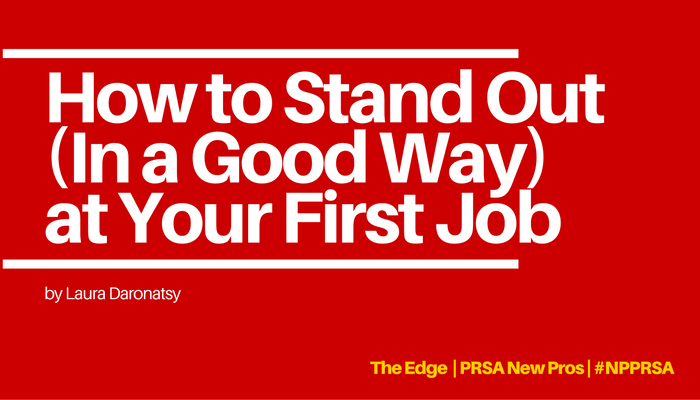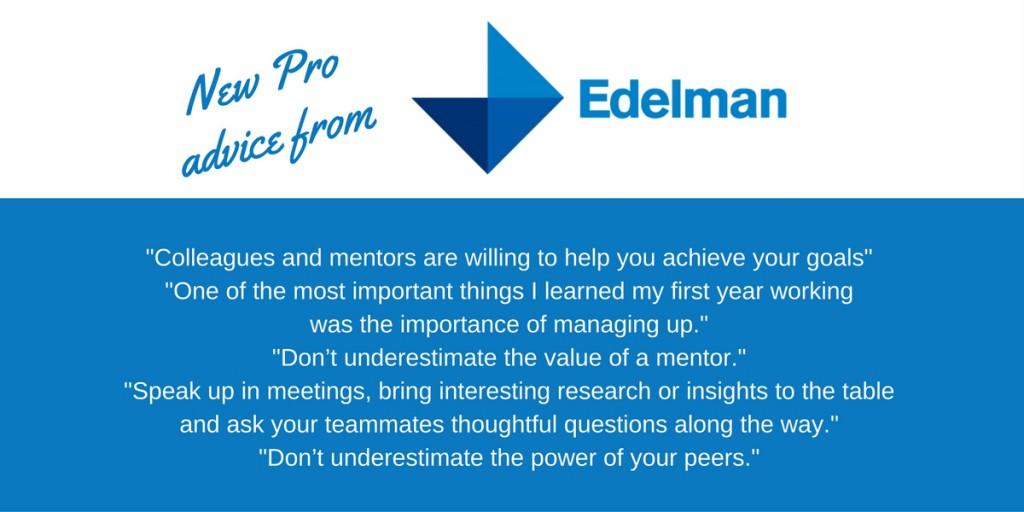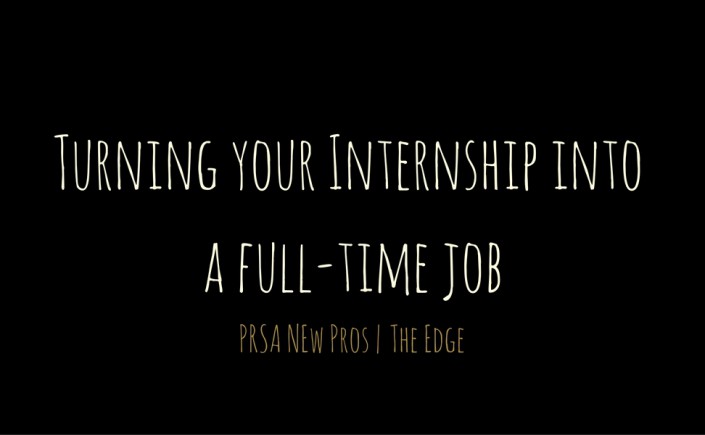From navigating the lunch scene to navigating office politics, a first job can be tricky. You want to find just the right balance of doing your job well without seeming like a suck up. I’m no expert, but I do want to share a few tips I’ve found to be helpful as I navigate my first real job:
Have an opinion
This piece of wisdom floated my way from a mentor who’s worked in communications for over 30 years. Just because you’re the new guy or gal doesn’t mean you have to be quiet. There’s a time for speaking and a time for silence. While it’s extremely important to embody a sponge sometimes — taking in all the newness and expertise around you — recognize that you were hired for a reason. Your insights, thoughts and opinions are company assets, so don’t let them go to waste by being unspoken.
Get to know your coworkers as people
You’re likely spending 40 plus hours in the office each week, sitting next to the same people every day. Take the time to find out what your coworkers’ lives are like when they’re off the clock. What do they love? What do they hate? What’s their favorite way to goof off or relax? By asking these questions and more, you’ll have a better understanding of who your colleagues are — not just as fellow workers, but as fellow humans. I think you’ll find that this has a catalyst effect when it comes to building trust and empathy. Plus, it’s never a bad idea to gain a little extra social capital by remembering someone’s birthday or wishing them well before they leave for vacation.
Keep a work/life balance
Plenty of people throughout your career will tell you to “say yes to everything.” In my opinion, it’s not the wisest way you can live and here’s why: If you keep saying yes to everything, you’re going to find it harder to flex your crucial muscle of discernment. Instead, you’ll find yourself automatically accepting job assignments and social invitations that are going to wear you out with no substantial gain. To function at your best, you have to create space to recharge and connect. Don’t believe me? Check out this handy PR Daily infographic that explains even more benefits of keeping your weekends free from work.
Do the right thing
At Lockheed Martin, “Do what’s right” is one of our three ethical mottos. (I’m fortunate that it’s also a life motto for me, too.) Lots of times it may be easier to purposefully overlook a small error or choose to end a task before going the extra mile. Hey, nobody’s even going to notice, right? Wrong. The trouble with that thinking is that it doesn’t matter if nobody notices. If you’re not doing the right thing and making choices out of integrity, then you’re not only cheating the company, but also yourself and your coworkers. Instead of “advancing the profession,” you are choosing to take the whole ship down with you.
What advice has been helpful to you at your first job? Or what advice do you wish you would have been given to you?
 Laura Daronatsy is the Immediate Past President of PRSSA and currently works as a Communications LDP Associate at Lockheed Martin. She graduated from Biola University with a public relations major and biblical and theological studies minor. Connect with Laura on Twitter @lauradaronatsy.
Laura Daronatsy is the Immediate Past President of PRSSA and currently works as a Communications LDP Associate at Lockheed Martin. She graduated from Biola University with a public relations major and biblical and theological studies minor. Connect with Laura on Twitter @lauradaronatsy.









